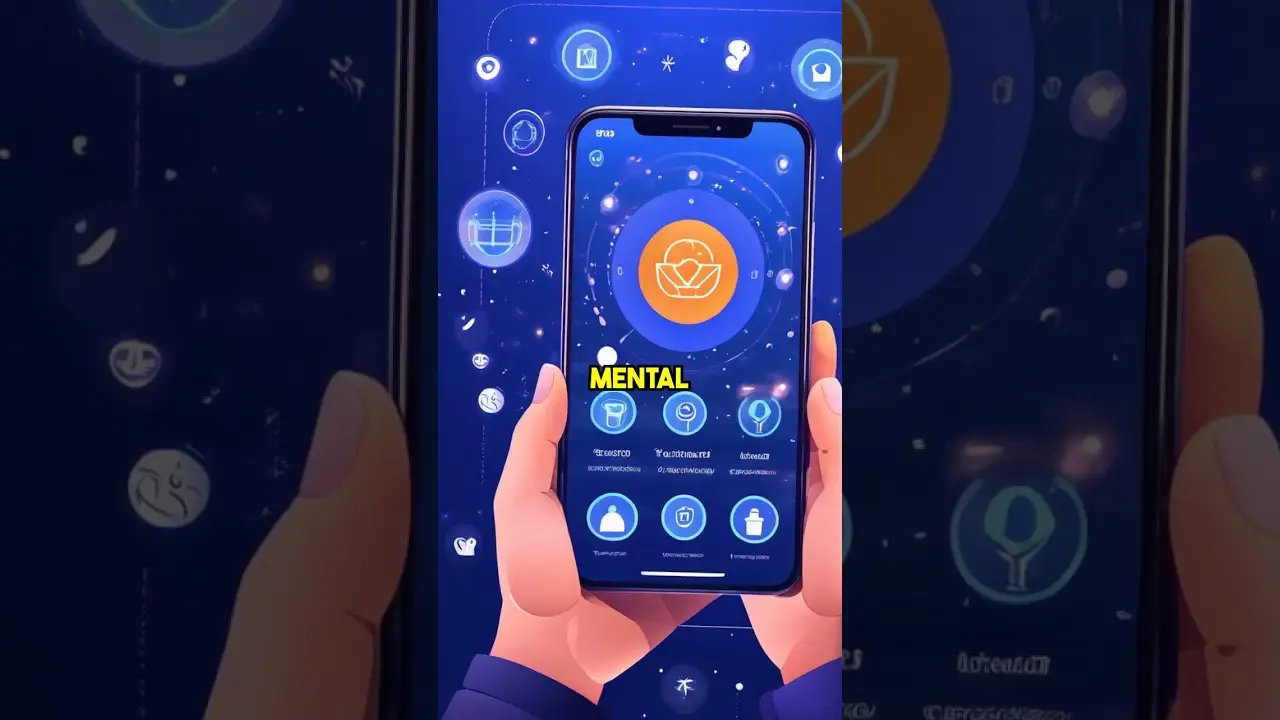In today’s fast-paced world, maintaining mental health and wellness is more crucial than ever. Digital mental health tools have emerged as a significant force in providing accessible and effective mental health support. These tools empower individuals by offering innovative ways to address mental health needs, manage anxiety and depression, and enhance overall wellbeing. This article explores the various aspects of digital mental health tools and how they are transforming mental health care.
What are Digital Mental Health Tools?
Defining Digital Mental Health
Digital mental health encompasses a wide range of health tools and services that utilize technology to support mental health. These tools include apps, online platforms, and software designed to help individuals manage their mental health problems. Digital mental health aims to provide accessible, affordable, and effective solutions for those seeking mental health support, often bridging the gap in traditional mental health care services.
Types of Digital Mental Health Tools
There are several types of digital mental health tools available, each catering to different needs. These include mental health apps, wearable devices, online therapy platforms, and digital cognitive behavioral therapy programs. Some tools focus on self-help and wellness, offering features like mood tracking, meditation, or journaling. Others provide more comprehensive support, including remote consultations with mental health professionals and access to therapeutic resources.
Examples of Popular Apps and Platforms
Several popular apps and platforms are widely recognized for their effectiveness in supporting mental health. Apps like Headspace and Calm offer mindfulness and meditation exercises, while platforms like BetterHelp and Talkspace connect users with licensed clinicians for remote therapy sessions. Other notable examples include Woebot, which uses artificial intelligence to deliver cognitive behavioral therapy, and Moodpath, which helps users track their mood and identify patterns related to anxiety and depression.
How Can Digital Tools Support Mental Health?
Benefits of Using Digital Tools for Mental Health
Digital mental health tools offer numerous benefits, including increased accessibility, convenience, and personalized support. These tools can be used anytime, anywhere, providing individuals with immediate assistance when needed. They also offer a degree of anonymity, which can be comforting for those hesitant to seek face-to-face mental health services. Additionally, digital tools often include features that allow users to track their progress, set goals, and receive motivational messages, enhancing their overall mental health treatment experience.
How Digital Tools Augment Traditional Mental Health Care
Digital mental health tools can significantly augment traditional mental health care by providing supplementary support and resources. For example, a mental health professional may recommend a specific app to help a patient manage symptoms between therapy sessions. These tools can also facilitate better communication and collaboration between patients and clinicians, ensuring that care is continuous and holistic. By integrating digital tools into traditional care models, the overall effectiveness and reach of mental health services can be greatly enhanced.
Impact on Anxiety and Depression
Digital mental health tools have shown considerable promise in addressing anxiety and depression. Many apps use evidence-based approaches, such as cognitive behavioral therapy, to help users develop coping strategies and change negative thought patterns. These tools can provide immediate relief and long-term support, making them an invaluable resource for those struggling with these common mental health issues. Studies have shown that using digital tools can significantly reduce symptoms of anxiety and depression, improving overall quality of life.
Are Digital Mental Health Tools Effective?
Research on Digital Mental Health Tools
Extensive research has been conducted to evaluate the effectiveness of digital mental health tools. Randomized controlled trials, in particular, have provided robust evidence supporting the efficacy of these tools in managing mental health conditions. The National Institute of Mental Health has funded numerous studies to explore the potential of digital interventions, with many showing positive outcomes in terms of symptom reduction and user satisfaction.
Clinical Research and Findings
Clinical research has further corroborated the benefits of digital mental health tools. Studies have found that these tools can be as effective as traditional face-to-face therapy in certain cases. For instance, digital cognitive behavioral therapy programs have demonstrated significant improvements in patients’ mental health, comparable to those seen with in-person therapy. These findings highlight the potential of digital tools to provide high-quality, effective mental health care.
Comparing Digital and Face-to-Face Therapy
While digital mental health tools offer numerous advantages, it is essential to consider how they compare to face-to-face therapy. Traditional therapy provides a personal connection and the ability to address complex issues in a more nuanced manner. However, digital tools can offer greater flexibility, accessibility, and immediate support, making them a viable option for many individuals. Ultimately, the choice between digital and face-to-face therapy depends on individual needs and preferences. Combining both approaches can often yield the best results, providing comprehensive mental health support.
How to Choose the Right Digital Mental Health Tool
Assessing Your Mental Health Needs
Choosing the right digital mental health tool begins with assessing your mental health needs. Consider what specific issues you want to address, such as anxiety, depression, or overall wellness. Reflect on the type of support you prefer, whether it’s self-help resources, interactive tools, or direct communication with a mental health professional. Understanding your needs will help you narrow down the options and select a tool that aligns with your goals.
Factors to Consider When Selecting an App
Several factors should be considered when selecting a mental health app. Look for apps that are evidence-based and have positive user reviews. Consider the features offered, such as mood tracking, guided meditations, or therapy sessions. Ensure the app is user-friendly and compatible with your smartphone or other devices. Additionally, check if the app provides data security and privacy, as protecting your personal information is crucial.
Consulting with a Clinician
Consulting with a clinician can be incredibly beneficial when choosing a digital mental health tool. A mental health professional can provide personalized recommendations based on your specific needs and preferences. They can also guide you on how to integrate digital tools into your overall mental health treatment plan, ensuring that you receive comprehensive and effective care. Don’t hesitate to seek professional advice to make an informed decision.
What Does the Future Hold for Digital Mental Health?
Evolving Digital Therapeutics
The future of digital mental health looks promising, with continuous advancements in digital therapeutics. These innovative treatments use technology to deliver personalized, evidence-based interventions. As digital therapeutics evolve, we can expect more sophisticated and effective tools to help manage mental health conditions. These advancements will likely lead to better outcomes and greater accessibility for individuals seeking mental health support.
Integration with Other Digital Health Resources
The integration of digital mental health tools with other digital health resources is another exciting trend. Combining mental health apps with mobile health platforms, wearable devices, and other digital health services can provide a more holistic approach to health and wellness. This integration can facilitate better monitoring of overall health, seamless communication between different health care providers, and a more comprehensive understanding of an individual’s health needs.
Trends in Mental Health Technologies
Several trends are emerging in the field of mental health technologies. Artificial intelligence and machine learning are being used to create more personalized and adaptive mental health tools. Virtual reality and augmented reality are being explored for therapeutic applications, offering immersive experiences to treat conditions like anxiety and PTSD. Additionally, the use of digital tools in preventive mental health care is gaining traction, emphasizing the importance of early intervention and continuous support.






